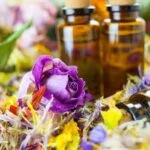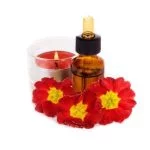
In today’s fast-paced and demanding world, stress has become a common part of our everyday lives. From work pressures to personal responsibilities, it’s easy to feel overwhelmed and anxious. That’s where the power of aromatherapy comes in.
Aromatherapy, the use of essential oils to promote physical and psychological well-being, has gained significant attention for its ability to effectively manage stress. Whether it’s through inhalation, topical application, or diffusion, aromatherapy offers a natural and holistic approach to reducing stress and promoting relaxation.
In this article, we will explore the science behind aromatherapy and how essential oils influence the brain and body. Understanding the mechanisms through which aromatherapy works can help us grasp the full potential of this ancient practice in managing stress. We will also delve into different techniques used in aromatherapy, such as inhalation and topical application, as well as how to effectively utilize diffusers for maximum benefits.
Furthermore, we will discuss the top essential oils known for their stress relief properties. Lavender, chamomile, and bergamot are just a few examples of these powerful oils that have been used for centuries to calm the mind and soothe the body. We’ll discover how these oils work individually and explore their synergistic effects when combined in blends or recipes.
By incorporating aromatherapy into your daily routine, you can empower yourself with natural tools to combat stress effectively. This article will provide dos and don’ts for practicing aromatherapy for stress management successfully. Additionally, we’ll share tips and tricks on how to make aromatherapy an integral part of your lifestyle so that you can enjoy long-term benefits.
But I am getting ahead of myself – let’s first dive into the science behind aromatherapy and understand how these exquisite essential oils influence our brains and bodies in profound ways.
The Science Behind Aromatherapy
Aromatherapy has been used for centuries as a natural remedy for stress management and overall wellness. But how exactly do essential oils influence the brain and body to promote relaxation and reduce stress? The answer lies in the science behind aromatherapy.
When we inhale essential oils, they interact with the olfactory system in our nose. This system is connected to the limbic system, which is responsible for controlling emotions, memory, and even our autonomic nervous system. As a result, certain scents can trigger emotional responses and have a direct impact on our mood.
In addition to their effect on the limbic system, essential oils contain chemical compounds that can be absorbed into the bloodstream when applied topically or inhaled. These compounds can then enter various systems of the body, such as the respiratory and circulatory systems.
To better understand how essential oils influence different bodily functions, it’s important to explore some key components of aromatherapy:
- Inhalation: Inhaling essential oils through methods like steam inhalation or using a diffuser allows the molecules to enter the respiratory system, where they can be quickly absorbed into the bloodstream.
- Topical Application: Applying essential oils directly onto the skin allows them to be absorbed through the pores and into the bloodstream. Popular methods include massage or adding a few drops into bathwater.
- Diffusion: Using an aromatherapy diffuser disperses essential oil molecules throughout a space, allowing you to breathe them in over an extended period of time.
By understanding these different techniques of aromatherapy, you can harness their power to effectively manage stress and promote relaxation in your daily life. Whether you choose inhalation, topical application, or diffusion will depend on your personal preferences and goals for stress relief.
Identifying Different Aromatherapy Techniques
Inhalation
Inhalation is one of the most common techniques used in aromatherapy for stress management. This method involves breathing in the aromatic molecules of essential oils, allowing them to enter the body through the olfactory system. Inhalation can be done in several ways, including using a diffuser, adding a few drops of essential oil to a tissue or cotton ball and inhaling deeply, or even simply opening the bottle and taking a sniff.
Topical Application
Another effective technique for using essential oils in aromatherapy for stress relief is topical application. When applied to the skin, essential oils can be absorbed into the bloodstream and provide their therapeutic benefits. However, it is important to properly dilute essential oils with a carrier oil before applying them topically to prevent skin irritation. Common carrier oils include coconut oil, almond oil, and jojoba oil.
Diffusion
Diffusion is a popular method of utilizing essential oils in aromatherapy for stress management. Using a diffuser allows for the dispersal of essential oil particles into the air, creating an aromatic atmosphere that can promote relaxation and relieve stress. There are different types of diffusers available, including ultrasonic diffusers that use water to disperse the oils as fine mist or nebulizing diffusers which break down the oils into smaller particles without using heat or water.
By understanding these different aromatherapy techniques – inhalation, topical application, and diffusion – individuals can make informed decisions about how they want to incorporate essential oils into their stress management routine. Each method has its own advantages and may be more suitable for certain situations or personal preferences. Experimenting with different techniques can help individuals find what works best for them in terms of relieving stress and promoting overall well-being.
Top Essential Oils for Stress Relief
Lavender, chamomile, and bergamot are three of the top essential oils known for their stress-relieving properties. These oils have been used for centuries to promote relaxation, calm the mind, and reduce anxiety. Each oil has its own unique aroma and therapeutic benefits that can help alleviate stress and promote a sense of well-being.
Lavender oil is perhaps the most popular essential oil when it comes to stress relief. Its soothing floral scent has been shown to promote relaxation and improve sleep quality. Studies have found that lavender oil can reduce anxiety levels in individuals undergoing medical procedures or facing stressful situations. It can be diffused in your home or office, added to a warm bath, or applied topically (diluted with a carrier oil) to help ease tension and promote relaxation.
Chamomile is another essential oil that is well-known for its calming properties. It has a sweet and fruity fragrance that promotes relaxation and helps combat nervous tension. Chamomile is often used in aromatherapy to ease symptoms of anxiety, insomnia, and restlessness. You can inhale chamomile oil directly from the bottle or add a few drops to your bathwater or diffuser to create a peaceful atmosphere.
Bergamot oil is derived from the peel of the bergamot orange fruit and has a refreshing citrusy aroma. It is commonly used in aromatherapy for its mood-lifting effects and ability to reduce stress levels. Bergamot oil has been found to reduce cortisol levels in the body, which is known as the “stress hormone.”
This makes it an excellent choice for easing feelings of anxiety and promoting emotional well-being. You can diffuse bergamot oil throughout your space, add it to massage oils or lotions, or even use it in a room spray.
| Essential Oil | Main Benefits |
|---|---|
| Lavender | Promotes relaxation, improves sleep quality, reduces anxiety levels |
| Chamomile | Calms the mind, eases symptoms of anxiety, insomnia, and restlessness |
| Bergamot | Mood-lifting effects, reduces stress levels and cortisol hormone production |
Combining Essential Oils for Maximum Stress Management Effects
One of the great benefits of aromatherapy is the ability to combine different essential oils to create blends that have maximum stress management effects. By blending essential oils, you can enhance their individual properties and create a customized aroma that suits your specific needs. Here are some popular essential oil blends and recipes for stress relief:
1. Calming Blend:
- Lavender: Known for its calming and relaxing properties, lavender is a staple in most aromatherapy blends for stress relief.
- Bergamot: This citrusy oil has uplifting and mood-enhancing effects, helping to reduce anxiety and promote relaxation.
- Ylang ylang: With its sweet floral scent, ylang ylang helps to balance emotions and ease tension.
To create this blend, combine 6 drops of lavender oil, 3 drops of bergamot oil, and 2 drops of ylang ylang oil in a diffuser or a carrier oil for topical application.
2. Grounding Blend:
- Vetiver: Known as the “oil of tranquility,” vetiver has grounding and calming effects, promoting emotional stability.
- Frankincense: This resinous oil is traditionally used for spiritual purposes and has a deep, woody aroma that helps to quiet the mind.
- Cedarwood: The warm and woody scent of cedarwood promotes feelings of security and stability.
To create this blend, combine 4 drops of vetiver oil, 4 drops of frankincense oil, and 2 drops of cedarwood oil in a diffuser or dilute with a carrier oil for topical application.
3. Uplifting Blend:
- Grapefruit: With its uplifting citrus scent, grapefruit essential oil can help combat fatigue and boost mood.
- Clary Sage: Known for its mood-enhancing properties, clary sage helps to relieve stress while promoting feelings of joy and positivity.
- Peppermint: The cooling minty aroma of peppermint oil can invigorate the senses and provide a refreshing boost of energy.
To create this blend, combine 4 drops of grapefruit oil, 3 drops of clary sage oil, and 2 drops of peppermint oil in a diffuser or dilute with a carrier oil for topical application.
Remember to always follow proper dilution guidelines and test the blend on a small area of skin before using it. Each person’s response to essential oils can vary, so it’s important to find the right combination that works for you. Experiment with different blends and recipes to discover your favorite stress management aroma.
Best Practices for Using Aromatherapy for Stress Management
Do: Choose High-Quality Essential Oils
When using aromatherapy for stress management, it is essential to choose high-quality essential oils. Look for oils that are 100% pure and have been derived from natural sources. Synthetic fragrances or low-quality oils may not provide the therapeutic benefits necessary for effective stress relief. It is also crucial to ensure that the essential oil has been properly stored and is within its expiration date.
Don’t: Overuse Essential Oils
While essential oils can be powerful tools for stress management, it is important not to overdo it. Using excessive amounts of essential oils or applying them too frequently can lead to adverse reactions or sensitivities. Remember that a little goes a long way with aromatherapy. Start with small amounts and gradually increase as needed, paying attention to your body’s response.
Do: Dilute Essential Oils Before Topical Use
If you plan to use essential oils topically, it is crucial to dilute them properly before applying them to the skin. Most essential oils are highly concentrated and can cause skin irritation if used undiluted. Dilute the chosen essential oil with a suitable carrier oil, such as jojoba, coconut, or sweet almond oil, at a recommended ratio of 2-3 drops of essential oil per teaspoon of carrier oil.
Don’t: Ingest Essential Oils without Proper Guidance
While some essential oils are safe for ingestion under the guidance of a trained professional, it is generally not recommended for stress management purposes unless advised by a qualified aromatherapist or healthcare provider. Ingesting certain essential oils without proper knowledge can be harmful and may interfere with medications or underlying health conditions.
Do: Conduct Patch Tests
Before using any new essential oil topically, it is crucial to perform a patch test to check for any potential allergies or sensitivities. Apply a small amount of diluted essential oil to a patch of skin – preferably on the inner forearm or wrist – and wait for 24 hours. If there is no adverse reaction, it is likely safe to proceed with using that particular essential oil.
Don’t: Use Aromatherapy as a Substitute for Professional Help
While aromatherapy can be a valuable tool for stress management, it is important to recognize its limitations. If you are experiencing severe or chronic stress, it is crucial to seek professional help from a healthcare provider or mental health professional. Aromatherapy should be used as part of a comprehensive approach to stress management, alongside other appropriate strategies and interventions.
By following these best practices when using aromatherapy for stress management, you can ensure a safe and effective experience while harnessing the natural healing properties of essential oils. Remember that everyone’s response to aromatherapy may differ, so it may be helpful to consult with an experienced aromatherapist who can guide you in selecting the most suitable essential oils and techniques for your specific needs.
Incorporating Aromatherapy into Your Daily Routine
Aromatherapy can be a powerful tool for stress management, but it is important to incorporate it into your daily routine consistently in order to experience long-term benefits. Here are some tips and tricks to help you integrate aromatherapy into your daily life:
- Create a dedicated space: Designate a specific area in your home or office where you can practice aromatherapy. This could be a small corner with a diffuser, candles, or essential oils. Having a dedicated space will help you associate that area with relaxation and stress relief.
- Start and end your day with aromatherapy: Begin your mornings by diffusing an uplifting essential oil blend like citrus or peppermint to energize yourself for the day ahead. In the evenings, wind down by using calming oils such as lavender or chamomile before bed to promote relaxation and improve sleep quality.
- Use aromatherapy during self-care activities: Incorporate essential oils into your self-care routine to enhance relaxation and pampering. Add a few drops of your favorite oil into a warm bath, mix them with carrier oils for a soothing massage, or use them in DIY facemasks or body scrubs for added benefits.
- Take advantage of portable options: If you’re always on the go, consider using portable methods of aromatherapy such as inhalers or rollerballs. These are convenient to carry, allowing you to enjoy the benefits of aromatherapy wherever you may be – whether at work, traveling, or running errands.
| Tips | Benefits |
|---|---|
| Create a dedicated space | Associates the designated area with relaxation and stress relief |
| Start and end your day with aromatherapy | Energizes in the mornings and promotes relaxation for better sleep at night |
| Use aromatherapy during self-care activities | Enhances relaxation during self-pampering routines |
| Take advantage of portable options | Allows for aromatherapy benefits on the go, wherever you are |
By incorporating these tips and tricks into your daily routine, you can create a consistent practice of aromatherapy that will contribute to long-term stress management. Experiment with different essential oil blends, techniques, and products to find what works best for you. Remember to always use high-quality essential oils and consult with a qualified aromatherapist if needed. With dedication and regular practice, you can harness the natural power of aromatherapy to effectively manage your stress levels.
Beyond Essential Oils
While essential oils are perhaps the most well-known and widely used aromatherapy products for stress management, there are other options available that can enhance the therapeutic effects. Candles and bath salts infused with calming and uplifting scents have gained popularity in recent years as additional tools for promoting relaxation and reducing stress.
Aromatherapy candles are created by blending essential oils with a solid wax base, such as soy or beeswax. When the candle is lit, the heat causes the essential oils to vaporize into the air, releasing their aromatic compounds. This allows for inhalation of these soothing scents, providing an immediate calming effect on the mind and body. The gentle flickering light from the candle also adds to the overall ambiance and promotes a sense of tranquility.
On the other hand, aromatherapy bath salts are created by combining mineral-rich salts with essential oils. When added to a warm bath, these salts dissolve in water, releasing their aromatic molecules into the steam.
As one soaks in this fragrant bath, not only is skin nourished by the minerals in the salt but also inhalation of these essential oil-infused vapors occurs. This dual benefit allows for deep relaxation and stress relief while indulging in a luxurious self-care ritual.
It’s important to note that when using other aromatherapy products such as candles or bath salts, quality is key. Look for products made with natural ingredients and pure essential oils to ensure you’re getting maximum benefits from your chosen scents. Additionally, it’s advisable to follow product instructions regarding usage guidelines and safety precautions. By incorporating these complementary products alongside traditional essential oils, you can create a multi-sensory environment that enhances your stress management routine even further.
Aromatherapy for Stress Management in Different Settings
Aromatherapy can be beneficial for stress management in various settings, including the home, office, and even during travel. Each setting presents different challenges and demands, but incorporating aromatherapy techniques can help create a calming and soothing environment wherever you may be.
At home, aromatherapy can be easily integrated into your daily routine. You can use a diffuser to fill the air with your chosen essential oils, creating a serene atmosphere throughout your living space. Lavender oil is particularly effective for promoting relaxation and sleep, making it an excellent choice for nighttime use in the bedroom. Diffusing citrus oils like bergamot or lemon during the day can energize and uplift your mood.
In the office, where stress levels can often run high, incorporating aromatherapy techniques can help create a more calming and productive workspace. Consider discreetly using a personal inhaler or applying essential oils topically to pulse points such as wrists or temples.
A few drops of chamomile oil on a tissue kept nearby can help alleviate anxiety during stressful moments. Consider discussing with coworkers or supervisors if they are open to diffusing essential oils in shared spaces for the benefit of everyone’s well-being.
When traveling, aromatherapy can provide comfort and relaxation during long journeys or while adjusting to new environments. Portable diffusers or inhalers are convenient options that allow you to enjoy the benefits of aroma even on the go. Essential oils like lavender or peppermint can be applied to hotel room linens or used in a hot bath after an exhausting day of exploring.
Conclusion
In conclusion, aromatherapy is a powerful tool for stress management that can empower individuals to take control of their well-being. Understanding the science behind aromatherapy and how essential oils influence the brain and body is crucial for maximizing its benefits. By identifying different aromatherapy techniques such as inhalation, topical application, and diffusion, individuals can choose the method that works best for them.
Knowing the top essential oils for stress relief, such as lavender, chamomile, and bergamot, allows individuals to create personalized blends and recipes that target their specific needs. Additionally, incorporating aromatherapy into daily routines and practices can provide long-term benefits. Tips and tricks for using aromatherapy in different settings such as home, office, and while traveling ensure that stress relief becomes a seamless part of everyday life.
Furthermore, exploring other aromatherapy products beyond essential oils, such as candles and bath salts, expands the possibilities for stress management. These products can create soothing environments that enhance relaxation and promote overall well-being. The natural power of aromatherapy offers endless options for relieving stress and promoting emotional balance.
Frequently Asked Questions
What essential oil is best for stress?
When it comes to finding the best essential oil for stress, lavender is often considered a top choice. Lavender oil has been widely studied and recognized for its calming properties.
Its soothing aroma has been shown to help reduce anxiety and promote relaxation. Many people find that inhaling or applying diluted lavender oil on the wrists, temples, or the back of the neck can offer relief from stress and tension.
What scent reduces stress?
There are several scents known to have stress-reducing properties, and one popular option is chamomile. Chamomile scent is believed to have calming effects on both the mind and body. Inhaling chamomile fragrance through essential oils or teas can help alleviate stress, anxiety, and promote better sleep. Its gentle aroma may also help ease tension headaches or migraines.
Where do you rub essential oils for stress?
Essential oils can be applied in various locations on the body to relieve stress, but a widely recommended area is the temples. The temples are located on either side of the forehead where many people carry tension during stressful times.
Applying a small amount of diluted essential oil like lavender or peppermint directly on the temples and gently massaging it in circular motions can offer quick relief from headaches and promote relaxation. Other areas where essential oils can be applied include the wrists, behind the ears, along the spine, or even added to bathwater for a soothing soak.




